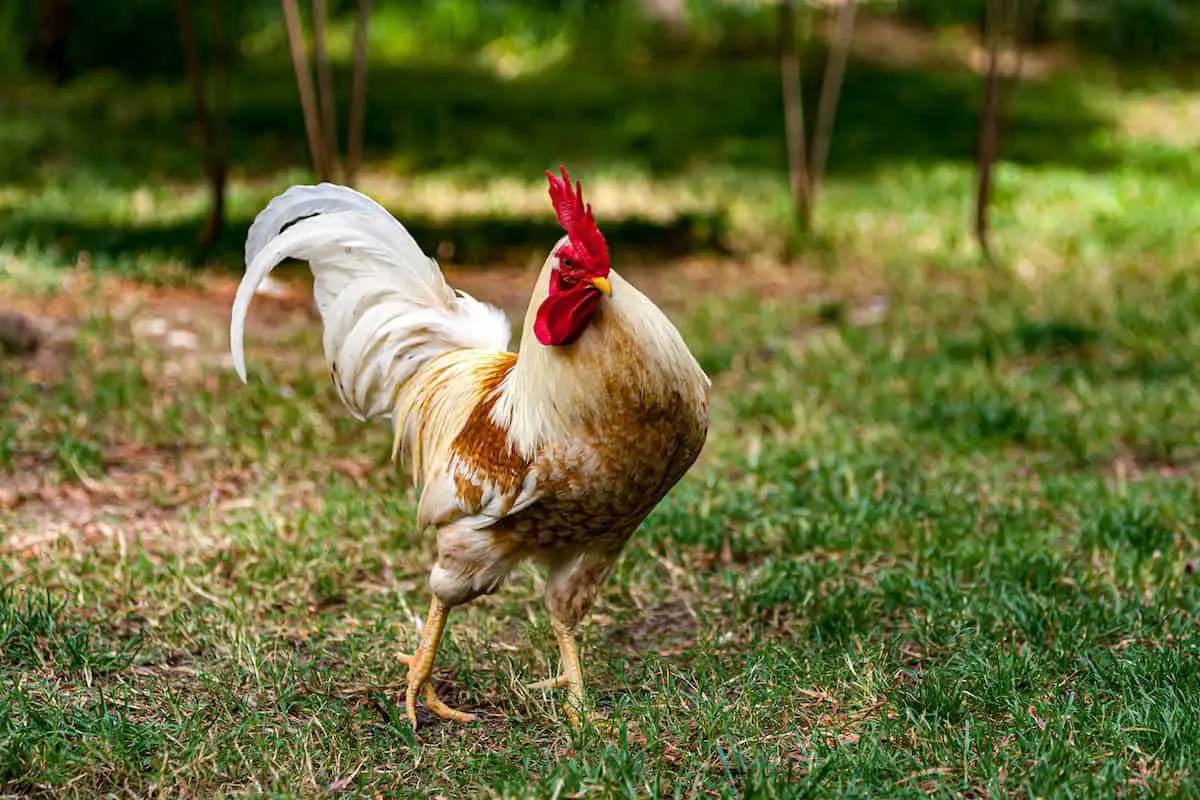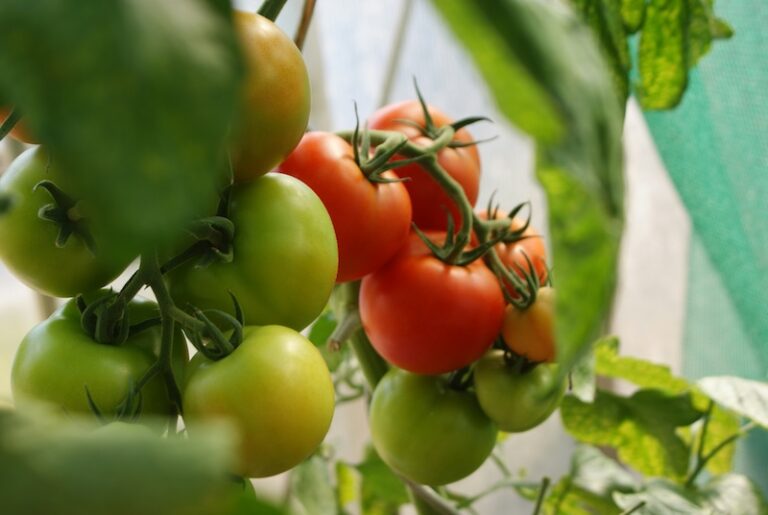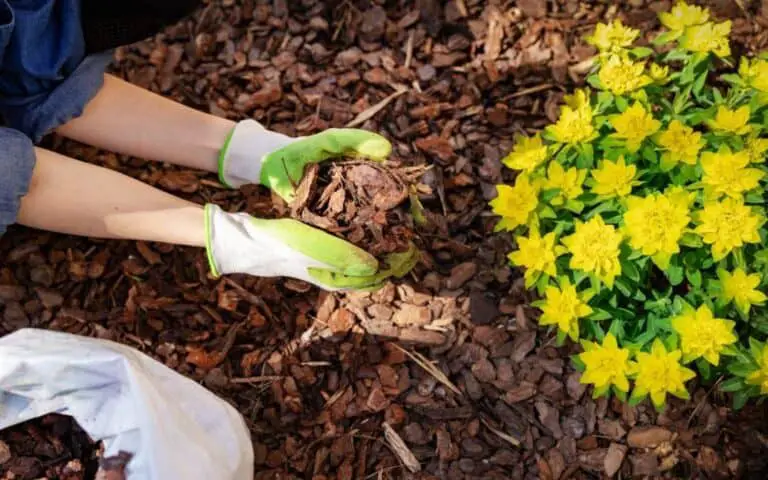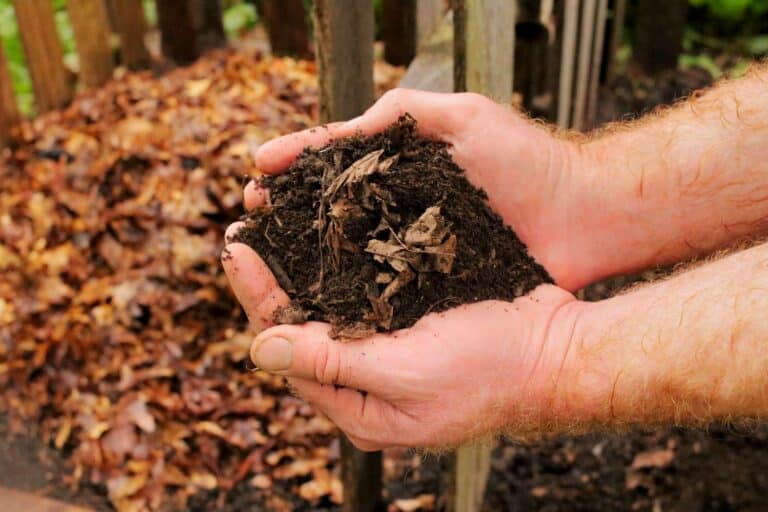Are Chickens Good for Vegetable Gardens: Benefits and Tips
Chickens can benefit vegetable gardens by controlling pests and providing natural fertilizer. They may also damage plants if not managed properly.
Chickens offer numerous advantages to vegetable gardens. They eat insects, slugs, and weeds, reducing the need for chemical pesticides. Their droppings enrich the soil with nutrients, enhancing plant growth. Chickens also help aerate the soil as they scratch and peck, promoting better water absorption.
However, gardeners must ensure chickens do not have unrestricted access to delicate plants. Protective measures like fencing or designated chicken runs can prevent potential damage. Balancing their benefits with proper management allows gardeners to maintain a healthy and productive vegetable garden while reaping the rewards of keeping chickens.
Introduction To Chickens In Gardens
Chickens in vegetable gardens can be a great idea. They bring many benefits to your garden. Chickens help with pest control and soil health. Let’s explore how chickens can improve your garden.
Companion Planting Basics
Companion planting involves growing plants together that help each other. Some plants repel pests, while others attract beneficial insects. Chickens can be part of this system.
- Chickens eat insects that harm plants.
- They scratch the soil, helping with aeration.
- Their manure enriches the soil with nutrients.
Understanding companion planting can maximize the benefits of having chickens. It creates a balanced and healthy garden ecosystem.
Why Chickens?
Chickens offer multiple benefits for vegetable gardens. They are natural pest controllers. They eat bugs, slugs, and other pests. This reduces the need for chemical pesticides.
Chickens also provide valuable manure. Their droppings are rich in nitrogen, an essential nutrient for plants. This helps in growing healthy vegetables.
They also help in tilling the soil. Chickens scratch and peck at the ground. This natural behavior helps to aerate the soil. It makes it easier for plants to grow.
| Benefit | Description |
|---|---|
| Pest Control | Chickens eat harmful insects and pests. |
| Soil Enrichment | Chicken manure adds essential nutrients to the soil. |
| Soil Aeration | Chickens scratch the soil, improving its quality. |
Incorporating chickens into your garden can be a win-win situation. They help your plants grow while providing you with fresh eggs. Understanding their benefits can make your garden thrive.
Nutrient-rich Soil
Chickens bring many benefits to vegetable gardens. One significant advantage is their ability to enhance soil quality. Healthy soil means healthy plants. Chickens contribute rich nutrients, creating a thriving environment for your vegetables.
Natural Fertilization
Chickens naturally fertilize the soil. Their droppings contain nitrogen, phosphorus, and potassium. These elements are essential for plant growth. Chickens help spread these nutrients evenly across the garden. This natural process reduces the need for chemical fertilizers.
Composting With Chicken Manure
Chicken manure makes excellent compost. It is rich in nutrients and helps build soil structure. Composting chicken manure properly is crucial. Fresh manure can be too strong for plants. Allow it to decompose for a few months before using it.
Follow these steps to compost chicken manure:
- Collect chicken droppings regularly.
- Mix manure with other compost materials.
- Turn the compost pile weekly.
- Wait for the compost to mature.
Once ready, this compost can be spread in your garden. It will enrich the soil and promote healthy plant growth.
| Nutrient | Benefit |
|---|---|
| Nitrogen | Boosts leafy growth |
| Phosphorus | Enhances root development |
| Potassium | Improves overall plant health |
Using chicken manure and allowing chickens to roam your garden creates a sustainable cycle. This practice provides nutrient-rich soil that benefits your vegetables greatly.
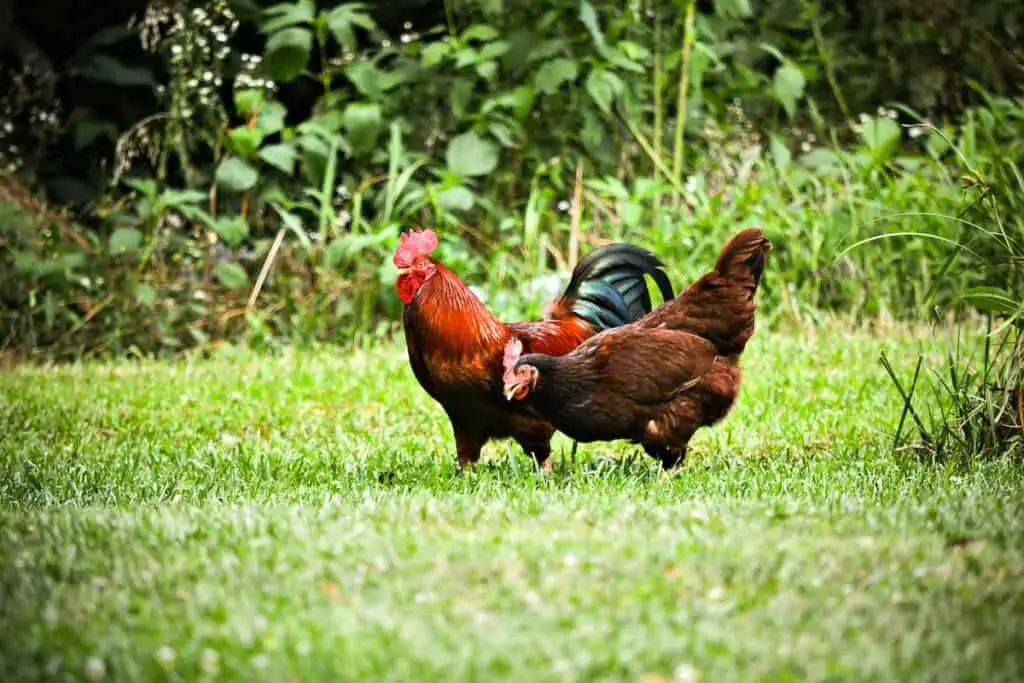
Pest Control
Chickens can be a great addition to your vegetable garden. They help control pests naturally. This makes them an eco-friendly option. Let’s dive into how chickens help with pest control.
Insect Reduction
Chickens love to eat insects. They will scratch the soil to find bugs. This helps to reduce the number of harmful insects. They eat beetles, caterpillars, and grasshoppers. Your plants will grow better without these pests.
| Insect | Benefit |
|---|---|
| Beetles | Less leaf damage |
| Caterpillars | Healthier leaves |
| Grasshoppers | Less crop loss |
Weed Management
Chickens also help with weed management. They scratch the soil looking for seeds. This disturbs the weeds and stops them from growing. Your garden will have fewer weeds. This means less work for you.
- Fewer weeds
- Healthier plants
- Less manual weeding
Enhanced Soil Aeration
Chickens can play a vital role in improving your vegetable garden’s soil. One major benefit is enhanced soil aeration. Chickens naturally scratch the soil, which helps keep it loose and well-aerated.
Natural Tilling
Chickens are natural tillers. They scratch the ground with their feet. This action breaks up clumps of soil. It also helps mix in organic matter. This leads to healthier soil for your vegetables.
Improved Water Penetration
When the soil is well-aerated, water can easily penetrate. This means plants get the water they need. Well-aerated soil prevents water from pooling on the surface. It also helps reduce soil erosion.
Let’s look at some benefits of improved water penetration:
- Healthier root systems: Roots can grow deeper and stronger.
- Better nutrient absorption: Plants can absorb nutrients more effectively.
- Reduced runoff: Less water is wasted due to surface runoff.
In summary, chickens can be a great addition to your vegetable garden. They help with natural tilling and improve water penetration. These actions lead to better soil and healthier plants.
Plant Protection Strategies
Chickens can be a great addition to vegetable gardens. But they can also damage plants if not managed well. Effective plant protection strategies are crucial. Here we discuss two key strategies.
Chicken Fencing
Fencing is the first line of defense against chickens. A strong, high fence keeps chickens away from your plants. Use chicken wire or mesh for the best results. Make sure the fence is at least four feet tall. Chickens can jump high when they are excited. Install the fence firmly into the ground. This stops chickens from digging under it.
Consider creating chicken runs within the garden. These are specific areas where chickens can roam. Use gates to control access between the runs and garden beds. This allows chickens to help with pest control in a controlled way.
Selective Planting
Selective planting can also protect your garden. Plant chicken-resistant plants near vulnerable ones. Chickens dislike plants like lavender, rosemary, and marigolds. These can act as natural barriers. Create a border of these plants around your vegetable beds.
You can also use companion planting to your advantage. Some plants grow better together and can protect each other. For example, tomatoes and basil are good companions. Basil can help repel pests that might attract chickens.
| Plant | Benefit |
|---|---|
| Lavender | Repels chickens and pests |
| Rosemary | Acts as a natural barrier |
| Marigold | Deters chickens and harmful insects |
By using these plant protection strategies, you can enjoy the benefits of chickens in your garden without the risk of plant damage.
Choosing The Right Chicken Breeds
Picking the right chicken breeds is crucial for your vegetable garden. Some breeds are gentle and won’t damage your plants. Others are better for laying eggs or pest control. Let’s explore the best breeds for gardens and their characteristics.
Best Breeds For Gardens
Some chicken breeds are perfect for gardens. Here are a few you might like:
| Breed | Benefits |
|---|---|
| Silkie | Gentle, good with kids, light foragers |
| Australorp | Heavy egg layers, good foragers |
| Orpington | Calm, easy to handle, good egg layers |
| Rhode Island Red | Hardy, excellent egg layers, good foragers |
| Plymouth Rock | Friendly, good layers, adaptable |
Breed Characteristics
Understanding breed characteristics helps in choosing the best chickens:
- Silkie: Silkie chickens are very gentle. They are great with kids. Silkies have fluffy feathers and do not scratch much.
- Australorp: Australorps are known for laying many eggs. They are good at finding insects. They are hardy and easy to manage.
- Orpington: Orpingtons are calm and friendly. They lay many eggs. They are easy to handle and good for gardens.
- Rhode Island Red: Rhode Island Reds are tough and hardy. They lay many eggs and are excellent foragers. They are good in different climates.
- Plymouth Rock: Plymouth Rocks are friendly and adaptable. They are good egg layers. They can handle various conditions well.
Choose breeds that fit your garden needs. Ensure they are gentle and good foragers. Your garden will benefit from the right chickens.
Daily Care And Maintenance
Chickens can be a great addition to your vegetable garden. They help with pest control and soil fertilization. To keep them healthy and productive, daily care and maintenance are essential.
Feeding Tips
Chickens need a balanced diet. Provide a mix of grains, vegetables, and protein. A good table for a chicken’s diet is shown below:
| Type of Food | Percentage |
|---|---|
| Grains | 50% |
| Vegetables | 30% |
| Protein | 20% |
Always provide fresh water. Change the water daily to keep it clean. You can also give them kitchen scraps, but avoid giving them onions and garlic as these can affect the taste of the eggs.
Health Monitoring
Monitor your chickens’ health daily. Look for signs of illness like drooping wings, pale combs, or abnormal droppings. Use the checklist below to help you:
- Check their eyes for clarity.
- Observe their walking and standing.
- Look at their feathers for any loss or damage.
- Inspect their comb and wattles for color and texture.
If you notice any issues, consult a vet. Keep the chicken coop clean to prevent diseases. Clean the coop weekly and replace the bedding.
By following these daily care and maintenance tips, your chickens will thrive. Healthy chickens make a healthy garden.
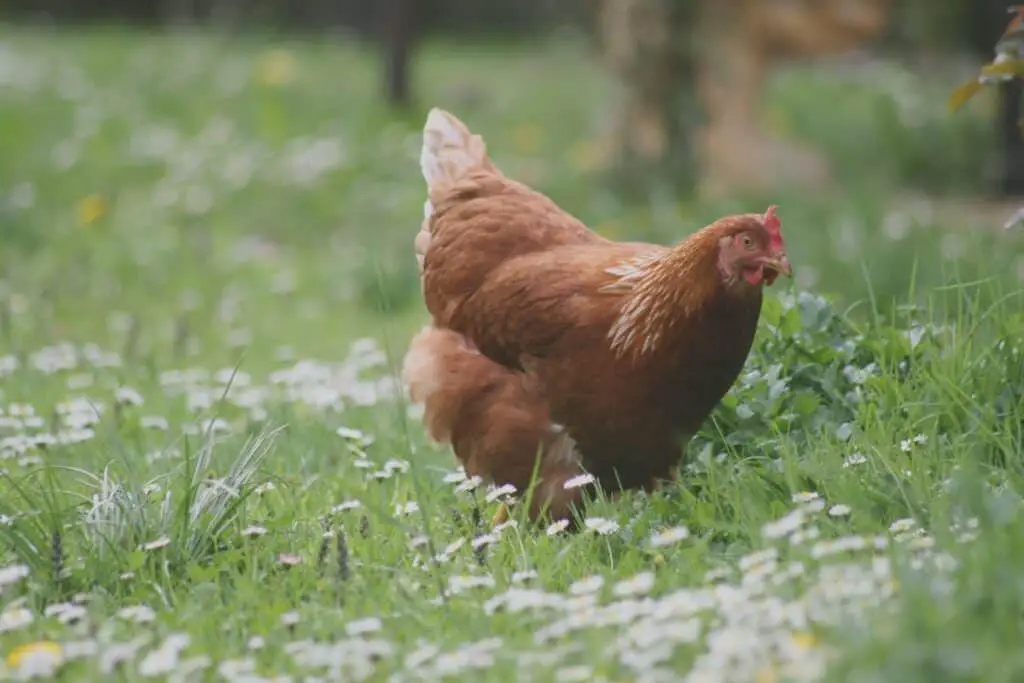
Potential Drawbacks
Chickens can be great helpers in a vegetable garden. They eat pests and fertilize the soil. But they also have some potential drawbacks. Let’s discuss these challenges and how to manage them.
Damage Control
Chickens can cause damage to your plants. They scratch the soil looking for bugs. This can uproot seedlings and disturb the soil structure.
To control damage, you can use chicken wire or netting. This helps keep chickens away from delicate plants. Another option is to create a designated chicken area in your garden. Rotate the chickens’ access to different parts of the garden.
Noise And Mess
Chickens can be noisy, especially in the morning. Their clucking and crowing might disturb neighbors. It is important to consider the noise factor before adding chickens to your garden.
Chickens also create a lot of mess. Their droppings can be smelly and unsightly. Regular cleaning of their coop and surrounding areas is essential. Composting chicken manure can help manage this mess while enriching your soil.
| Challenge | Solution |
|---|---|
| Plant Damage | Use chicken wire or netting |
| Noise | Consider neighbors before adding chickens |
| Mess | Regular cleaning and composting |
By addressing these potential drawbacks, you can enjoy the benefits of having chickens in your vegetable garden without significant issues.
Frequently Asked Questions
Should You Let Chickens In Your Vegetable Garden?
Yes, chickens can be beneficial in your vegetable garden. They eat pests and help fertilize the soil. However, supervise them to prevent damage to plants.
What Are The Best Chickens For Vegetable Gardens?
The best chickens for vegetable gardens are Bantams and Australorps. They are small, gentle, and great for pest control.
What Vegetable Plants Can Chickens Eat?
Chickens can eat vegetables like lettuce, spinach, kale, carrots, peas, broccoli, and cucumbers. These provide essential nutrients for their diet.
Conclusion
Chickens can be a great addition to your vegetable garden. They help control pests and fertilize the soil. Ensure proper management to avoid plant damage. With care, chickens and gardens can thrive together. Try integrating chickens to boost your garden’s health and productivity.

